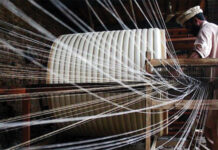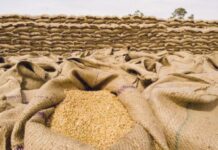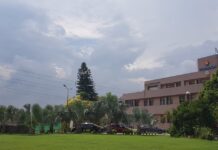With Afghanistan’s clear message that until India is included as third party there will be no use of Afghanistan-Pakistan Transit Trade Agreement, the bilateral trade is expected to fall further in future.
According to reliable sources, Afghanistan, while denying attending a recently-scheduled meeting of Afghanistan-Pakistan Transit Trade Coordination Authority (APTTCA), has made it clear that the agreement has lost its importance for keeping India outside.
Talking to Pakistan Today, FPCCI Standing Committee on Afghanistan Transit Trade Chairman Engr Daroo Khan Achakzai said that as the demand of Kabul was unacceptable for Pakistan the bilateral trade was likely to shrink further causing diversion of Afghan’s trade towards Iran and other central Asian countries.
Daroo Khan, who has been member of ATTCA, said that last meeting of the authority was held in February 2015 in which Kabul was given the offer of including Tajikistan or any other Central Asian state in the agreement to expand the access of the landlocked country. It was later agreed to include Tajikistan holding next meeting of APTTCA in Dushanbe. However it was not materialised for various reasons mainly due to Afghanistan’s insistence to include India in the agreement.
Relaxing conditions, Pakistan had allowed Afghanistan to export its goods to India via Pakistan, however, imports from India were not allowed. Under the said agreement, Afghan goods mostly perishable items are being sent to India via Wagah Border.
“The agreement was to be revised in the scheduled meeting this month. However Afghan government called off the meeting with a Pakistan delegation citing the reason that since India is not being allowed to be a part of the agreement, Kabul does not want a futile exercise,” he said adding that it was unfortunate that Afghanistan has backtracked from the agreement.
APTTCA is a crucial trade body whose responsibility is to ensure smooth implementation of the trade treaty between the two countries. The agreement was signed in 2010 for next five years and it was agreed to hold meeting of the authority after every six months. In 2015 it was revived till further order.
“Apart from the dysfunctional APTTCA, the stiff conditions set for Afghan’s trade in Pakistan are also hampering bilateral trade. The major conditions discouraging the trade include the containerization of goods, insuring goods, installing tracker system, scanning of export goods, difference in grantee vale, monopolized transport system etc,” he said.
“Making it a compulsory to use a ‘certain’ transport vehicles and tracking system for lifting goods from Afghan border to Karachi Port is not only damaging bilateral trade but also adding no benefit to government exchequer,” he said adding that Afghan exporters did not face the same conditions in Iran. They rather are more facilitated at Chahbahar port.
“Afghan trucks were allowed to lift import goods from any part of Pakistan to Kabul after offloading Afghan origin goods at Wahgah. However, the Afghan drivers feeling uneasy to drive on left hand side of the road in Pakistan do not lift imported goods from Pakistan while on their way back to Kabul,” Daroo Khan said while replying to a query.
According to available statistics, India has become major destination for Afghanistan’s goods where Kabul exports 43 per cent of its goods mostly food items. While Afghan’s imports from Iran, Tajikistan, India, China are increasing, it still imports 39 per cent of goods from Pakistan.
As Afghanistan’s divergence of trade continues to avoid dependency on Pakistan, Islamabad’s exports to the landlocked country have reduced from $2.6 billion to $1.2 billion during the past five years. According to experts, Afghanistan has been a key export destination for Pakistani goods for the last two decades. But downslide has been seen in trade during past few years.

























